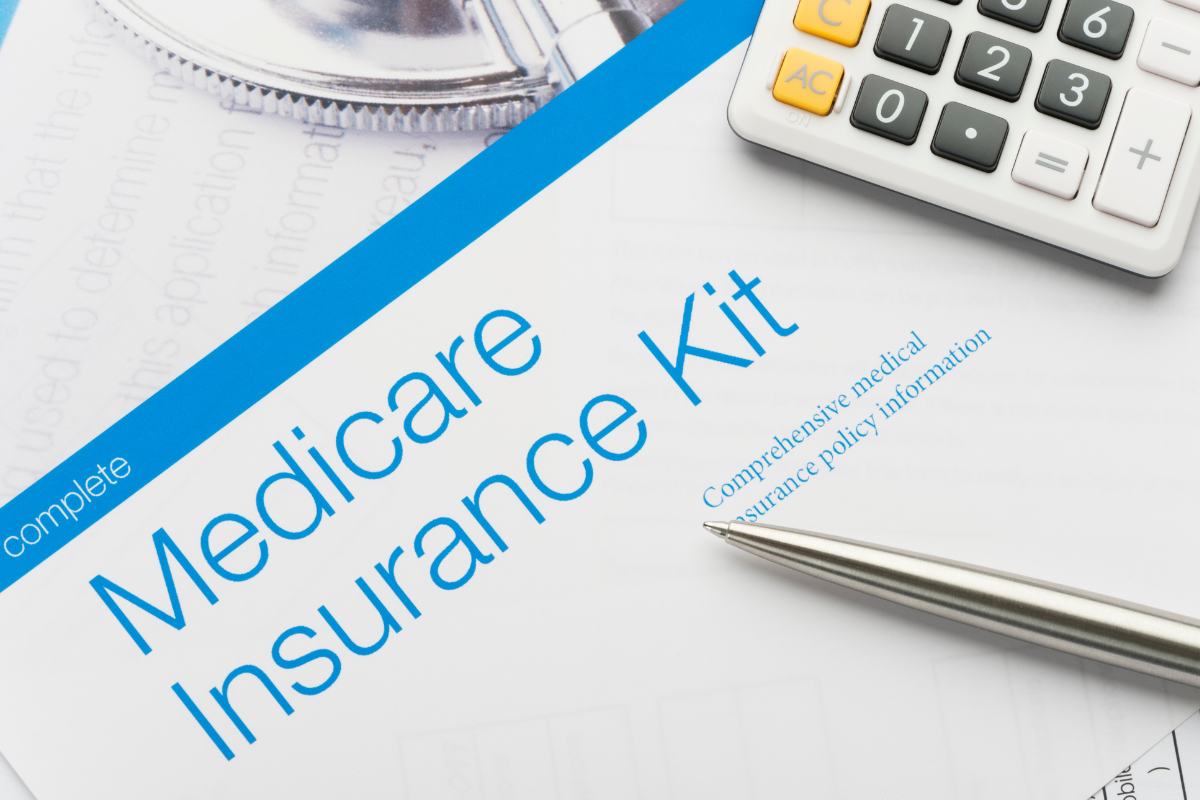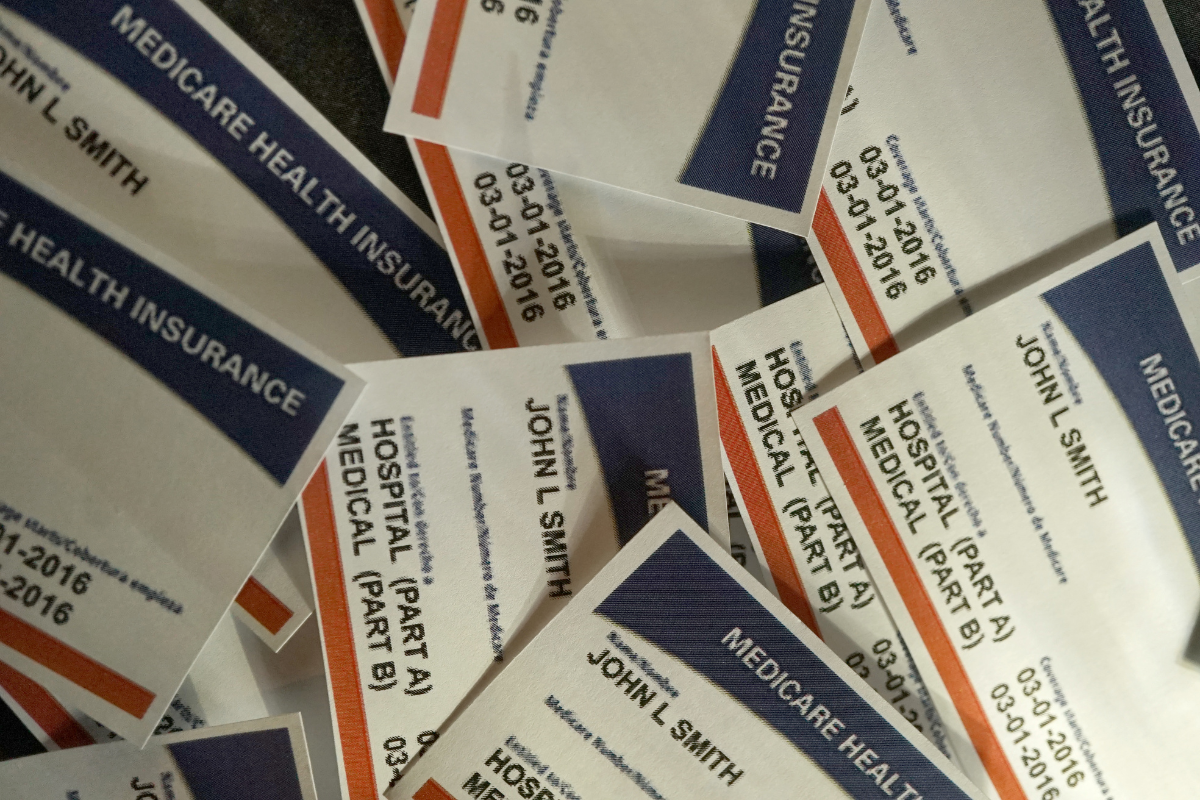Post Disclaimer: This blog reflects the author's personal experience with end-of-life matters and is provided in good faith for informational purposes only. While we aim to provide clear guidance on hard-to-find topics, this content is not legal advice and your use is at your own risk. Estate planning and end-of-life laws vary by location, so please consult your state's laws and seek guidance from a licensed attorney for your specific situation. We make no warranty about the accuracy or completeness of this information, which does not replace professional legal counsel. For more information, please see our full disclaimer.
Losing a loved one is an emotional and overwhelming time.
Families often face financial and administrative tasks they might not expect.
Understanding Medicare benefits when dealing with a loved one's passing can help you manage this transition.
Many wonder, “Does Medicare have death benefits?” or “Who is eligible for Medicare death benefit assistance?”
Medicare coverage after death is limited and does not include direct death or burial benefits. However, Medicare will cover eligible medical expenses incurred before death, potentially reducing the estate's financial burden. Survivors may be able to claim reimbursements for any overpaid premiums, but must report the death promptly.
While Medicare doesn’t cover everything, there are specific guidelines and support options to be aware of.
We'll walk you through key details, like Medicare survivor benefits and handling Medicare death benefits effectively.
For example, learning about processes like reporting a death to the Social Security Administration could streamline some steps during this difficult time.

Understanding Medicare Benefits
Navigating Medicare can feel daunting, especially amid the challenges of losing a loved one.
Medicare benefits form an integral part of healthcare for many Americans, but understanding the details can help families during difficult times.
Below, we break down the essentials of Medicare benefits and the various parts that make up this program.
What Are Medicare Benefits?
Medicare benefits are federally run programs designed to assist older adults and certain younger individuals with disabilities in managing healthcare costs.
They provide access to essential medical services, including hospitalization, outpatient care, preventive services, and prescription drug coverage.
While Medicare is a key resource for navigating medical expenses during life, it’s vital to understand its limitations when it comes to end-of-life care or post-death related benefits often tied to terms like Medicare death benefits or Medicare burial benefits.
Families often ask, “Does Medicare have death benefits?”
The answer lies not in a direct funeral or bereavement stipend, but in the coverage or support Medicare provides for medical expenses incurred before death, as those bills may have implications for the estate left behind.
For a closer look at how Medicare functions overall, refer to How Does Medicare Work?.
Types of Medicare Benefits
Understanding the structure of Medicare benefits is crucial, as each part addresses specific healthcare needs and coverage.
Part A (Hospital Insurance)
Part A is often known as hospital insurance.
It covers hospital stays, limited skilled nursing care, and some aspects of hospice care.
This part is fundamental for those requiring inpatient care, especially during critical illnesses.
For those wondering about its post-death relevance, Medicare Part A may cover some hospice services, but it doesn’t extend to funeral-related expenses or direct Medicare funeral benefits.
Part B (Medical Insurance)
Part B includes coverage for routine doctors’ visits, outpatient care, medical supplies, and preventive care.
It assists in addressing recurring medical needs.
However, it’s essential to note that just like Part A, this coverage ceases upon the individual’s demise, leaving families to manage any outstanding balances.
Part C (Medicare Advantage)
Medicare Advantage plans (Part C) are private insurance options that bundle the benefits of Parts A and B, often with added advantages like dental or vision coverage.
These plans introduce flexibility, but their scope, especially in end-of-life or Medicare survivor benefits, varies substantially depending on the chosen provider.
Look deeper into the details of these plans through Medicare Advantage Plans.
Part D (Prescription Drug Coverage)
Medicare Part D supplements Medicare by covering prescription medications.
This benefit can be invaluable, especially when managing long-term health conditions.
However, it doesn’t contribute to post-death expenses directly, which dispels myths about Medicare offering a death benefit amount tied to pharmacological costs.
For a comprehensive breakdown of these options, visit Understanding Medicare's Part A, B, C, and D Options.
In rare circumstances, families might inquire “Who is eligible for Medicare death benefits?” or seek clarification on what’s actually covered.
While terms like Medicare burial benefits might seem applicable, they usually don’t extend beyond pre-death coverage for insured individuals.
The lack of direct funeral funding highlights the importance of planning or alternative support options.
Understanding the intricacies of Medicare ensures family members are equipped to handle outcomes related to medical coverage without surprise.

Medicare Benefits After Death
When a loved one passes away, understanding the relationship between Medicare and death benefits is crucial.
While Medicare doesn’t routinely offer direct financial assistance for funeral costs or burial services, there are aspects of the program that families may find helpful during this time.
Let’s break down what you need to know about Medicare survivor benefits, death benefits, and eligibility requirements.
What Are Medicare Survivor Benefits?
Medicare survivor benefits are not what many people might assume.
Unlike traditional survivor benefits offered by Social Security, Medicare itself does not provide direct financial aid in the event of a beneficiary’s death.
However, survivors may still benefit indirectly from healthcare services provided under Medicare if the individual was a participant before their death.
For instance, if the deceased had incurred medical costs covered under Medicare prior to passing, their family or estate would not be responsible for those exact expenses.
This could significantly reduce the emotional and financial burden at an already challenging time.
Additionally, Social Security survivor benefits may work in conjunction with Medicare for eligible family members.
Do Medicare and Death Benefits Coexist?
Medicare’s role does not directly include covering funeral or burial expenses.
While some families may assume there are “Medicare and death benefits” allocated for post-death arrangements, that’s a misconception.
The program primarily focuses on providing coverage for health services that occurred before the individual’s death.
However, in certain cases under Medicare Part D, remaining balances tied to prescription drug plans might require adjustments.
Beneficiaries under Medicare Advantage plans may also have specific wrap-around services that could indirectly support end-of-life needs, but these vary significantly by provider.
For accurate details, reviewing official guidelines like Humana's explanation of Medicare death benefits could be insightful.
Who Is Eligible for Medicare Death Benefits?
There’s some confusion about eligibility for Medicare death benefits, especially when families hear terms like "Medicare funeral benefits" or "Medicare death benefit amount."
The reality is that Medicare does not currently offer such benefits.
However, you may be eligible to claim any overpaid medical premiums if the deceased individual had coverage under Medicare.
In rare circumstances, specific instructions allow surviving family members to access healthcare-related reimbursements.
For example, the program includes provisions for paying unpaid bills related to the deceased’s eligible medical services.
You can find comprehensive criteria tied to such claims under regulations like 42 CFR § 424.62.
If you are tasked with handling the estate or resolving benefits, it’s essential to notify Medicare and the provider immediately.
Additionally, ensure you follow the protocol for closing accounts or transferring eligible survivor benefits through Social Security's death reporting process.
Understanding Medicare’s limitations when dealing with death benefits reinforces the need to explore alternative options for burial expenses and final arrangements.

Financial Implications for Families
When dealing with the loss of a loved one, families must navigate both emotional and financial challenges.
Amid the confusion, you may wonder whether Medicare can alleviate some of the financial burden, particularly when it comes to burial and funeral expenses.
Here's a detailed look at what you need to know.
Medicare Burial Benefits
Families often ask whether Medicare covers burial expenses.
Unfortunately, Medicare does not provide direct burial benefits.
This might come as a surprise, but Medicare’s primary purpose is to cover healthcare-related costs, not post-death arrangements.
However, any outstanding medical services or care received before passing that Medicare would typically cover will still fall under the program's guidelines.
While burial costs aren’t directly addressed, VA survivor programs using VA Form 21P-534EZ - Veterans Benefits Administration could be considered for veterans or specialized cases where aid for unreimbursed medical expenses might assist indirectly.
It’s important for families to know these limits in order to plan accordingly and seek other support systems for final expenses.
Medicare Funeral Benefits
The phrase Medicare funeral benefits often generates confusion.
To clarify, Medicare does not cover the expenses for funerals.
Funeral costs, cremations, memorials, or related services are not considered healthcare costs under Medicare.
This means families will need to turn to other sources, such as private insurance or personal savings, for these expenses.
For better understanding, refer to insights from Humana’s Medicare Death Benefits Guide, which outlines what Medicare is and isn’t designed to handle in these situations.
Budgeting for such scenarios is an essential part of end-of-life planning.
Medicare Death Benefit Amount
Another common question that arises is whether there is a specific Medicare death benefit amount.
The reality is that Medicare does not offer a lump sum death benefit.
Unlike Social Security, which may provide a one-time payment to a surviving spouse or eligible dependent, Medicare primarily focuses on covering healthcare costs during life rather than end-of-life or after-death financial aids.
That said, there may be indirect benefits through unclaimed Medicare reimbursements or overpaid premiums.
To explore how these could apply, you can reach out to the Medicare office promptly and ensure proper reporting of the death.
Check details from resources like GoHealth’s breakdown on funeral expenses and Medicare for further clarity.
Families should also understand that planning ahead with supplemental insurance policies or final expense plans can help fill this crucial gap.
By recognizing Medicare’s limitations in terms of burial and funeral benefits, you can better prepare for the financial implications during this difficult time.

How to Report a Death to Medicare
When a loved one passes away, reporting their death to Medicare is a crucial administrative step.
This ensures that coverage ceases appropriately and avoids potential complications, such as improper billing or benefit overpayments.
As Medicare works in conjunction with Social Security, notifying the Social Security Administration (SSA) generally addresses both programs.
Important Documentation Required
Before reaching out to report a death to Medicare, gather all necessary documents.
Proper preparation will help make the process smoother and minimize any confusion.
Here’s a list of what you’ll typically need:
- Certified Death Certificate: This is required to verify the passing. You can obtain this through the funeral home or the local vital records office.
- Social Security Number: The deceased’s SSN is essential, as Medicare is tied closely to Social Security benefits.
- Medicare Card: While not always required, having their Medicare card or relevant policy papers can streamline the reporting process.
- Power of Attorney Documentation (if applicable): If you’re legally managing affairs on behalf of the deceased, provide necessary proof.
- Bank Details: In some cases, financial institutions must be informed to stop direct deposits.
Proper organization goes a long way in facilitating a smooth process.
Referencing a guide like How to Report a Death to Medicare and Social Security can clarify specific state or federal requirements.
Timeline for Reporting and Claims Processing
Timeliness is vital when reporting a death to Medicare, as it can save families from unexpected complications like inappropriate charges or delays in finalizing the deceased’s affairs.
- Reporting the Death: Ideally, the death should be reported within a few days. The SSA often handles this step efficiently if the funeral provider already informs them about the death.
- Processing by Medicare: Once notified, Medicare typically requires a short processing period of 1-3 weeks. This timeline may vary based on the scope of services tied to the deceased’s account.
- Claims on Overpaid Benefits: For premium refunds, claims, or overpayments, processing could take an additional 30-60 days after reporting, depending on the complexity of the case.
To expedite matters, families should contact the SSA directly.
For further guidance on Medicare and Social Security reporting, check Agencies to Notify When Someone Dies.
Managing these tasks while grieving can feel overwhelming.
Remember, you’re not alone, and resources like your local SSA office or details from experts like GoHealth's FAQ on Reporting Medicare Deaths can assist in streamlining the process.

Additional Resources for Families
When a loved one dies, the immediate period following their passing is filled with complex emotions and logistical challenges.
Thankfully, various tools and organizations offer guidance and support to ease the burden.
Below, you'll find resources to help navigate this difficult time, from helpful contacts to community-driven support networks.
Useful Links and Contacts
Finding the right resources is essential when dealing with a loss.
Whether you're sorting through legal matters or seeking emotional support, these links can guide you:
- Social Security Administration (SSA): The SSA provides survivor benefits that might align with what Medicare doesn’t cover. Learn more about Social Security Survivor Benefits.
- Medicare Guidance: If you're managing Medicare accounts for the deceased, their official reporting page is a solid starting point.
- Immediate Action Plans: If unsure where to begin after a loss, the Death of a Family Member Checklist can give you step-by-step guidance.
- Specialized Grief Support: For unique needs, the Dougy Center offers focused counseling and tools.
- Additional Guidance: Websites like the M.I.S.S Foundation have online discussions to support grieving individuals and families.
Each of these resources brings something different to the table, ensuring that you’re not navigating this journey alone.
Community Support Groups
Dealing with grief isn't a process you should shoulder alone.
Whether in-person or online, support groups bring together those experiencing similar losses, providing relief and understanding.
- Grief Groups Specific to Children and Parents: Organizations like Children's Bereavement Center specialize in helping younger family members process grief healthily.
- Localized Groups: Look for tailored help by area through Good Grief's local support directory, which sorts providers by state and city.
- General Loss Support: Engage in supportive communities such as the SADS Foundation resources designed for shared healing, both virtual and physical.
Community networks create a nurturing environment where families can learn, grow, and heal together.
Engaging in these spaces might not solve everything, but the solidarity within such groups restores hope during life’s darkest times.

Wrap-up: Medicare Benefits After Death
Dealing with a loved one’s passing is never easy, but understanding Medicare benefits can simplify some aspects of this challenging time.
From clarifying misconceptions about Medicare and death benefits to explaining processes like reporting a death to the Social Security Administration, this guide aims to provide clarity and support.
Families may not find direct financial help through Medicare for funeral or burial expenses but knowing the program's structure can prevent unexpected surprises.
Exploring options such as Social Security survivor benefits or private insurance fills gaps where Medicare falls short.
Take the time to review your loved one’s coverage details and communicate with Medicare or Social Security when needed.
Creating a step-by-step plan can reduce stress and ensure no benefits are overlooked.
Let conversations about these realities inspire proactive end-of-life preparation for yourself and your family. Planning today relieves burdens tomorrow.
Check out the Up & Doing glossary page for an alphabetical listing of key terms related to estate administration, funeral planning, and other end-of-life topics.




